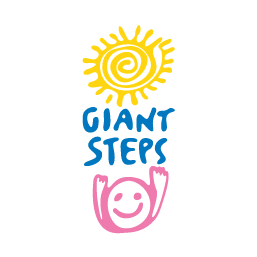Occupational Therapy
SYDNEY AND MELBOURNE
Occupational Therapy
SYDNEY AND MELBOURNE
Occupational therapy aims to enable our students to participate in the activities of everyday life. This is achieved by working with the students to enhance their ability to engage in the occupations they want to, need to or are expected to, or by modifying the occupation or the environment to better support their level of engagement.
Our approach
Participation in meaningful life activities is supported by helping the individual to maintain, improve or develop new skills; adapting the environment; and/or adapting the task requirements. Through occupational therapy, a person with autism can be aided both at home, in the community and within the school setting by teaching skills needed for tasks including dressing, feeding, toilet training, grooming, social interaction, writing, manipulation and scissor use, walking, running, playing and sports, and managing classroom expectations.
Many children with ASDs have some kind of sensory processing disorder. This means they process information about their world and their bodies differently to others. This may affect them in a number of ways: poor balance, difficulties planning movements efficiently, difficulties attending to important information, emotional dysregulation, sensitivity or seeking in their sensory systems and much more. The impact of sensory dysfunction can vary greatly however it often impacts the person’s ability to learn successfully.
The whole team works to equip and support the children to engage in all classroom, community, routine and playground activities.
In the school context, an Occupational Therapist’s main focus is to support children to engage in their primary occupation of being a student. At Giant Steps, this is achieved through working within a transdisciplinary team to equip and support children to engage in all classroom, community, routine and playground activities.
Skills which Occupational Therapists bring to the transdisciplinary team:
- Assessment of occupational performance (e.g. handwriting, self-care skills), skills required for performance (e.g. gross and fine motor, cognitive) and sensory processing
- Goal setting
- Development and implementation of programs and strategies to improve skills for participation
- Environmental modification to enable participation
- Addressing the emotional and sensory needs of individual students
At Giant Steps, Occupational Therapists work with classroom teams to support each student in three different ways. Whilst different in style, each way is focussed on sharing knowledge with the whole team. This facilitates skill development for staff members outside of their specialisation, ultimately strengthening all programs at Giant Steps.
- Demonstration – This is where an Occupational Therapist will take a leading role in developing and implementing a group or individual program. Once established the therapist will focus on ensuring information related to the program is shared amongst the team to enable other team members to complement and/or take over the program.
- Collaboration – This is where a therapist will develop a program with a teacher or other therapist ‘from the ground up’. This provides an opportunity for therapists and teachers to contribute their specialised skills to a program whilst learning from each other.
- Consultation – This is where therapists make recommendations for classes and individual programs based on assessment and observation. Where required, therapists will demonstrate how to implement strategies and work with teachers to ensure the recommendations are able to be managed within the classroom environment.
Occupational Therapists also play a key role in supporting families. This is achieved through regular communication with families concerning goals for their child, successes and challenges at home and school and recommended strategies for success. Ensuring generalisation of skills across all environments is a key focus for Occupational Therapists as this allows students to engage fully in activities at home, school and in the broader community.

Andrew Frakes
PrincipalBAppSc(OT) MTeach(Primary)
Andrew Frakes holds a Masters of Teaching from University of New England and Bachelor of Applied Science in Occupational Therapy from the University of Sydney.
Since joining Giant Steps in 2008, Andrew has been integral in the expansion of the organisation and its services, including the Rob Llewellyn-Jones Clinical and Research Centre, addressing the complex mental health concerns of our students. Andrew was previously the National Director of Occupational Therapy before taking on his current position as School Principal of Giant Steps Sydney.
Andrew has a particular interest in supporting individuals displaying severe and challenging behaviours. He successfully created and led the introduction of Giant Steps’ tiered approach – Student Engagement Support, one of the key elements underpinning our transdisciplinary program. Andrew has significant experience in developing plans for children who find it difficult regulating their emotions.
Email:andrew.frakes@giantsteps.net.au
Telephone:+61 2 9879 4971
SYDNEY TEAM

Semray Ali
National Director of Adult Autism ServicesBAppSci(OT)
Semray graduated from the University of Sydney with a Bachelor of Applied Science (OT) in 2010 and has been working at Giant Steps since 2012.
As an Occupational Therapist, Semray worked across all programs from K-12 before moving into the Adult Autism Services program in 2015. Semray completed her longitudinal training through the Institute of Applied Behaviour Analysis and is currently a registered Behaviour Support Practitioner.
In addition to her role as Director of Adult Autism Services at Giant Steps, Semray helps manage her family business; a boarding house for adults with mental illness. Semray’s experience and passion drive her to deliver the best possible opportunities for adults living with autism and their families.
Email:semray.ali@giantsteps.net.au
Telephone:+61 2 9879 4971

Cassie Roberts
Director of Occupational Therapy - PrimaryBAppSci(OT)
Cassie Roberts-Smillie has been working as an Occupational Therapist at Giant Steps since 2019. She has worked across all areas of the school, including lower primary, primary and secondary. Cassie is passionate about supporting young people with autism to develop their independence while addressing their sensory processing difficulties. Cassie enjoys working alongside teachers, therapists and educators in order to provide a holistic approach to address emotional regulation and sensory processing challenges.

